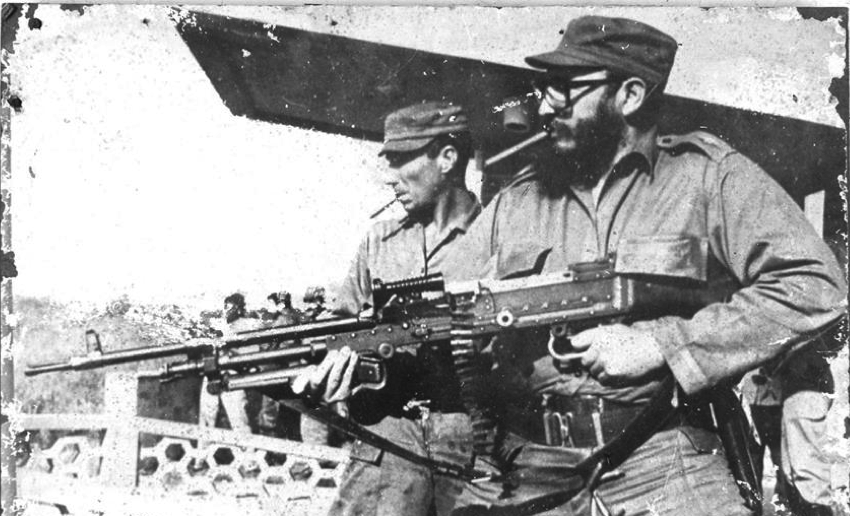I grew up hearing about the day that Fidel Castro died. It was the day my family, and more than a million other Cubans, could finally return to the land they fled half a century before. It was the day that my mother, flipping through old black-and-white photos of my grandfather at his restaurant in Havana, hoped he would live to see.
My grandfather passed away nine years ago, without ever returning to his native land. And last Friday, that day finally came.
Friday was not the miracle I once expected it to be. The ruthless tyrant is dead, but the repressive regime he built has survived him. Nonetheless, for Cuban refugees around the world, Castro’s death brings a glimmer of hope for the future. He represented the soldiers who patrolled the hallways of my uncle’s elementary school, armed with AK-47s. He represented the paredón—the wall—at which “counter-revolutionaries” were shot without trial. He represented everything we are fighting to change in Cuba, and now that he is gone, perhaps change will come.
Apparently, for many on the political left in countries like the United States and Canada, he represented something different.
To Canadian Prime Minister Justin Trudeau, Castro was a “revolutionary.” Trudeau went on to make the ridiculous assertion that even Castro’s “detractors”—that is, the people he imprisoned, tortured, or forced to escape—would surely “recognize his tremendous dedication and love for the Cuban people.”
I grew up in New York City, perhaps the capital of the American Left. I have seen enough people wearing Che Guevara T-shirts that I am no longer surprised when liberals lionize Cuba’s brutal dictatorship. But as a liberal, I am disappointed.
I am disappointed when Black Lives Matter activist Shaun King paints Castro as an anti-apartheid crusader and does not mention that he killed fifteen thousand of his own people.
I am disappointed when my friends and classmates laud Castro for improving the literacy rate and do not mention that more than thirteen percent of his citizens fled his tyrannical regime. Imagine if that happened in the United States—if forty million people fled this country in terror. Would they be silent then?
How can they fight for economic justice, and also glorify a man who amassed a hundred million-dollar fortune on the backs of his own people?
How can they mourn the deaths of Sandra Bland and of other Black Americans in U.S. prisons, and also mourn a man who tortured political dissidents? When, just a few years ago, hunger striker Orlando Zapata Tamayo was beaten and deprived of water until he died of kidney failure, who said his name?

It feels hollow and empty when, like Justin Trudeau or Shaun King, they justify praising a dictator with platitudes like “while he was controversial” or “I have major critiques of Castro.” That is not enough. Right now, it is important to listen to the voices of the Cubans who have suffered under Castro’s regime.
Listen to Guillermo Fariñas, a Cuban psychologist who has endured twenty-three hunger strikes protesting the Cuban government’s censorship and abuse of human rights. On the morning after Castro’s death, he emphasized that we must not forget what Castro has done: “We have to talk about the firing squads in ’59 and ’60. We have to talk about the prisoners—the twenty thousand prisoners—they took in the sixties and seventies. We have to talk about all of it. We have to write this tragedy into history, so that we know that the people who started this fight have handed it off to us.”

To Shaun King and to all of my friends who have praised Castro: I know you mean well. I know you care. I have seen you give your time and energy to the fight against oppression.
But you should know: when you laud the Cuban literacy rate and write off Castro’s human rights abuses, that is a slap in the face to the family of Orlando Zapata Tamayo.
It is a slap in the face to Guillermo Fariñas, for you are helping to forget the victims he desperately wants to remember.
It is a slap in the face to all of the men, women, and children Castro has imprisoned, tortured and killed.
And it is a slap in the face to every Cuban-American, because we know that were it not for the hospitality of the United States, we would be among them.

